(Reuters) – The labels “dove” and “hawk” have long been used by central bank watchers to describe the monetary policy leanings of policymakers, with a dove more focused on risks to the labor market and a hawk more focused on the threat of inflation.
The topsy-turvy economic environment of the coronavirus pandemic sidelined those differences, turning U.S. Federal Reserve officials at first universally dovish as they sought to provide massive accommodation to a cratering economy, and then, when inflation surged, into hawks who uniformly backed aggressive rate hikes. Now, divisions are more evident, with more varied choices: to raise rates again, skip for now but stay poised for more later, or take an extended pause.
All 12 regional Fed presidents discuss and debate monetary policy at Federal Open Market Committee (FOMC) meetings, held eight times a year, but only five cast votes at any given meeting, including the New York Fed president and four others who vote for one year at a time on a rotating schedule.
The following chart offers a stab at how officials stack up on their outlook for Fed policy and how to balance their goals of stable prices and full employment. The designations are based on comments and published remarks; for more on the thinking that shaped these hawk-dove designations, click on the photos in the graphic.
Dove Dovish Centrist Hawkish Hawk
Lisa Cook, Jerome Christopher
Governor, John Powell, Fed Waller,
permanent Williams, Chair, Governor,
voter: “If New York permanent permanent
confirmed, I Fed voter: “We voter:
will stay President, want to see “There’s
focused on permanent convincing nothing
inflation voter: “My evidence that is
until our job current really, that saying we
is done.” June assessment we have need to do
21, 2023 is that we reached the anything
are at, or appropriate imminent
near, the level.” Sept anytime
peak level 20, 2023 soon, so we
of the can just
target sit there,
range for wait for
the the data,
federal see if
funds things
rate.” continue.”
Sept. 29, Sept. 5,
2023 2023
Austan Philip Michael Barr, Michelle
Goolsbee, Jefferson, Vice Chair of Bowman,
Chicago Fed Governor Supervision, Governor,
President, and Vice permanent permanent
2023 voter: Chair voter: “I’ll voter: “I
“Believing too Designate, just say for continue to
strongly in permanent myself, I expect that
the voter: think we’re further
inevitability “The close.” July rate hikes
of a large economy 10, 2023 will likely
trade-off faces be needed
between multiple to return
inflation and challenges inflation
unemployment , to 2% in a
comes with the including timely
serious risk inflation, way.” Sept
of a near-term banking-se 22, 2023
policy error.” ctor
Sept. 28, 2023 stress,
and
geopolitic
al
instabilit
y. The
Federal
Reserve
must
remain
attentive
to them
all.” June
21, 2023
Patrick Mary Daly, Neel Loretta
Harker, San Kashkari, Mester,
Philadelphia Francisco Minneapolis Cleveland
Fed President, Fed Fed Fed
2023 voter: President, President, President,
“Right now, I 2024 2023 voter: 2024 voter:
think that voter: “Today I put “Probably
we’ve probably “Patience a 40% we need to
done enough.” is a probability” bring rates
Aug. 24, 2023 prudent on the up another
strategy.” scenario that notch….It
Sept 22, “we would doesn’t
2023 have to push necessarily
the federal have to be
funds rate September,
higher, but I think
potentially this year.”
meaningfully Aug. 26,
higher.” Sept 2023
26, 2023
Raphael Susan Lorie Logan,
Bostic, Collins, Dallas Fed
Atlanta Fed Boston Fed President,
President, President, 2023 voter:
2024 voter: “I 2025 “My base
feel policy is voter: “I case, though,
appropriately expect is that there
restrictive.” rates may is work left
Aug. 31, 2023 have to to do.” Sept.
stay 7, 2023
higher,
and for
longer,
than
previous
projection
s had
suggested.
” Sept.
22, 2023
Thomas
Barkin,
Richmond Fed
President,
2024 voter:
“It’s good
for the Fed
to take some
time and see
how the data
plays out.”
Sept. 28,
2023
Note: Fed policymakers began raising interest rates in March 2022 to bring down high inflation. Their most recent policy rate hike, to a range of 5.25%-5.5%, was in July.
Most policymakers as of September expected one more rate hike by year’s end. Neither Jeff Schmid, Kansas City Fed’s president since August and a voter in 2025, nor Adriana Kugler, a permanent voter who was confirmed to the Fed Board in September, have yet made any substantive policy remarks. The St. Louis Fed has begun a search to succeed president, James Bullard, who took a job in academia; the new chief will be a 2025 voter.
Read the full article here


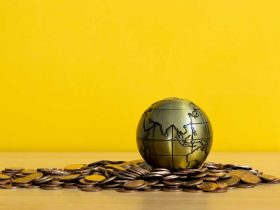
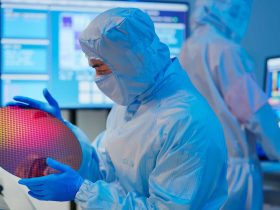
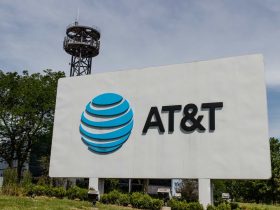
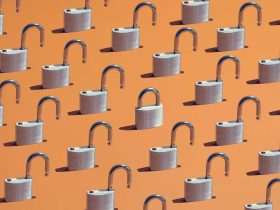


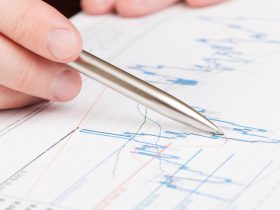
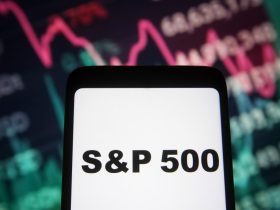
Leave a Reply